In one of the most thrilling afternoons of chess in recent memory, India’s rising star, IM Divya Deshmukh, delivered a stunning upset by defeating former Women’s World Champion, GM Tan Zhongyi of China, to advance to the final of the FIDE Women’s World Cup.
The 19-year-old from Nagpur made history as the first Indian woman to reach the final of this prestigious tournament. With this landmark achievement, Divya also secures one of three highly sought-after spots in the FIDE Women’s Candidates Tournament, bringing her within striking distance of a world title challenge. In addition, her performance earns her a Grandmaster norm, a major milestone on the path to the sport’s highest title.
Still absorbing the momentous result, Divya reflected candidly in her post-game remarks on stage: “I think I could have played much better. I was winning at a certain point and then it got complicated. I think I messed up in the middlegame and that I should have had a much smoother win.”

As she now prepares for the final, all eyes are on Divya Deshmukh, whose fearless play and quiet determination have already secured her a place in chess history.
In the other hard-fought semi-final encounter, Indian GM Humpy Koneru maintained sustained pressure throughout the game, never allowing her opponent, GM Lei Tingjie, an easy path to equality.
“Today’s game was very tough, and I think at some point she could have won,” Lei admitted in her post-game interview, acknowledging the uphill battle she faced.
Despite being on the defensive for much of the game, Lei showed remarkable resilience and accuracy, with only one critical moment near the end where she stood on the verge of defeat.
In the end, the draw was a hard-earned and well-deserved result.

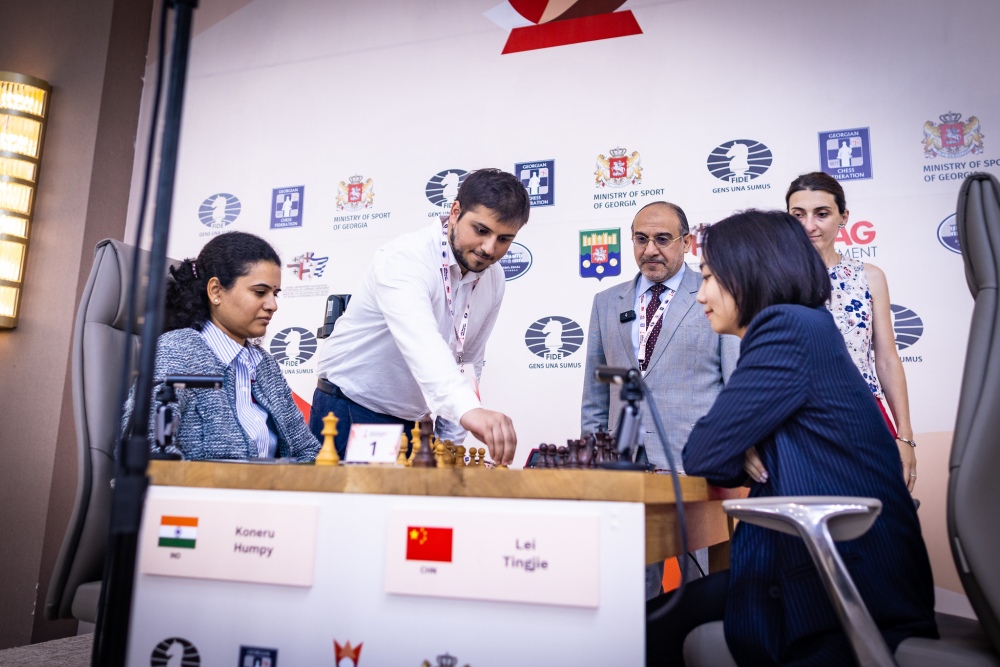
“Tournaments are like this—very up and down. At this point, you just have to fight for every game,” Lei concluded, reflecting the gritty determination required at this elite level of competition.
Let’s take a closer look at the two games.
Humpy Koneru vs Lei Tingjie (0.5-0.5)
A special guest of the event, Mr. Armaz Chagalidze, Representative of the Ministry of Sport of Georgia, had the honor of making the first move on Humpy’s board. With a 5.5–4.5 head-to-head lead in Humpy’s favor, expectations were high for a tight and tense encounter — and the players did not disappoint.
Humpy opened with 1.d4, to which Lei responded with the Slav Defence. Interestingly, although the Exchange Variation is not Humpy’s typical weapon of choice, she recently used it successfully against IM Nurgyul Salimova at the Pune Grand Prix.
On the other side of the board, Lei has a long-standing history in the line, with games dating back to 2013 and continuing through 2024. The first key psychological moment occurred on move seventeen.
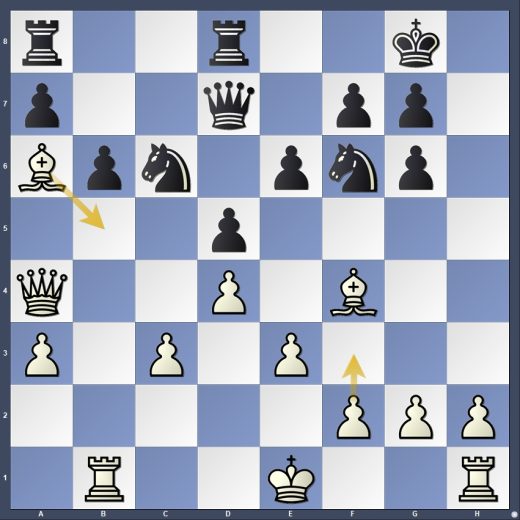
Humpy paused to consider her options. A clear path to a draw existed via the repetition line: 17.Bb5 Rfc8 18.Ba6, which would have almost certainly led to a threefold repetition and a quick handshake.
Instead, showing ambition, Humpy opted for 17.f3 e5 18.dxe5 Nxe5 19.Qxd7
The game transitioned into a complex and unbalanced double rook and pawn ending, with Humpy slightly better.
However, Lei demonstrated excellent defensive precision, notably sacrificing a pawn to keep her rook and king active — a practical choice that neutralized White’s advantage.
For a long stretch, engines evaluated the position as 0.00 — and the game seemed destined for a draw. And indeed, it was. But not before one final twist.
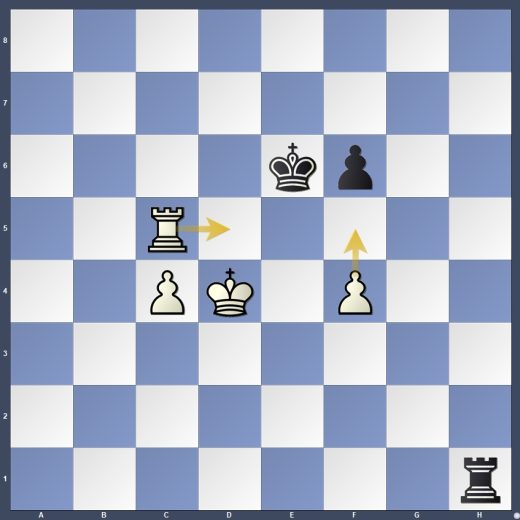
With only one minute on her clock, Humpy missed a golden opportunity:
64.Rd5! This move cuts off the black king, followed up with 65.Kc5, White would have had a winning position.
Instead, Humpy played 64.f5+?? Kd6, allowing Lei to set up the well-known Philidor third-rank defense, and from there, she held the draw without difficulty.
“I was under pressure most of the game, but I think the endgame should be holdable. Still, it’s hard to defend,” Lei commented after the game.
Looking ahead to the tiebreaks, she added calmly: “I’m just happy to play the tiebreaks after today’s game. If I lose, I don’t care. If I win, it will be a kind of gift.”
Divya Deshmukh vs Tan Zhongyi (1-0)
The classical head-to-head score between these two competitors favoured Tan Zhongyi 3–1 going into today’s game. Nevertheless, in their previous encounter, the result was adraw—with Divya pressing in the final phase.
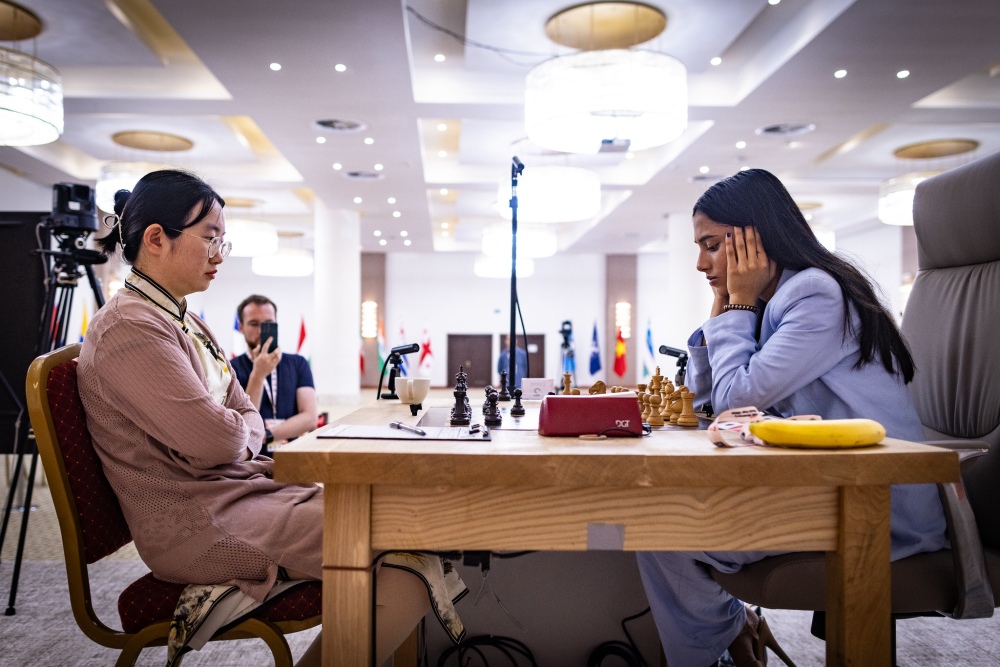
This game marked a small but significant shift in Divya’s opening repertoire: for the first time in classical chess, she essayed 3.c3 against the Sicilian. Typically known for her preference for the Open Sicilian with 3.d4, the early deviation suggested a specific preparation or a surprise strategy.
However, signs of discomfort emerged early on, as she spent considerable time during the opening phase—indicating she was slightly unfamiliar with the nuances of the position.
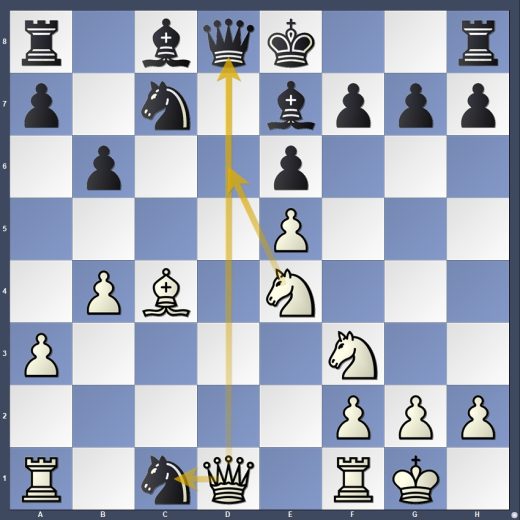
At this moment, Divya played the natural 15.Qxc1, maintaining her lead in development.
However, this was a missed opportunity. The engine reveals a much stronger continuation: 15.Qxd8+ Kxd8 (or 15…Bxd8 16.Nd6+) followed by 16.Rac1 Bb7 17.Rfd1+
In this line, White not only wins a pawn but also seizes long-term pressure with dominating rooks on the open files. It would have posed serious practical problems for Tan Zhongyi.
By move 23, Divya faced a critical decision: to launch an attacking initiative or go for concrete gains by winning a pawn in exchange for the opponent’s activity. She chose the latter—a path that engines evaluate as suboptimal. This slight misjudgement shifted the momentum, and soon Tan
Zhongyi seized the initiative. But the tide was far from settled.
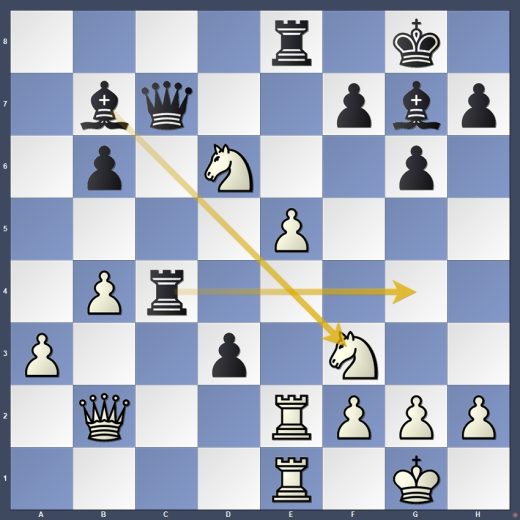
In this tense, complex moment, Tan had just under eight minutes remaining and used six of them here, calculating deeply. Unfortunately for her, she chose the wrong continuation.
Tan played 32…Bxf3 followed by 33.gxf3 dxe2, allowing White to regain control. Instead, she had a spectacular tactical resource: 32…Rg4! 33.Nxe8 Bxf3! If 34.Nxc7, then comes 34…Rxg2+ 35.Kf1 Rxh2, and White cannot stop the devastating checkmate on h1.
This stunning queen sacrifice would have turned the tables completely, and with Divya having only 30 seconds on the clock, it’s unclear whether she could have navigated through the complications.
After Black’s missed chance, the game became a one-way ticket for Divya. While she could have converted her in the rook endgame more convincingly, her victory was nonetheless fully earned.
In her post-game interview, a visibly relieved Divya said: “She put up such a great fight at a certain point; I was just doubting if it was just a draw – I think I got lucky in the end. Now I just need some sleep and some food: these days have been so anxious for me.”
Her words reflected both the intensity of the battle and the emotional toll of top-level chess.